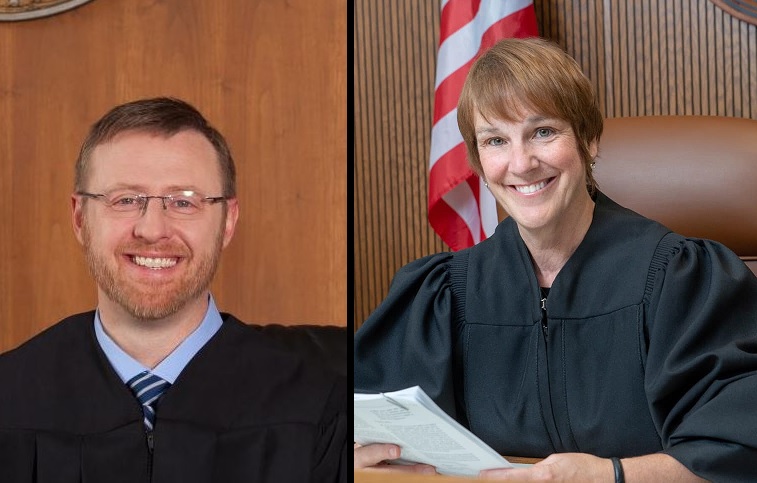Wisconsin
Wisconsin voters have another partisan choice for high court

MADISON, Wis. (AP) — The Wisconsin Supreme Court race being decided Tuesday won’t result in an immediate change in the ideological leaning of the court, but the stakes were high for both sides because it could make it possible for liberals to win majority control next year.
Conservatives have been in the majority since 2008, currently with a 4-3 split. Their majority would increase to 5-2 if conservative candidate Brian Hagedorn defeats Lisa Neubauer on Tuesday. A win by Neubauer would give liberals a chance to take control in the 2020 election.
The Wisconsin Supreme Court has been the final word in some of the most partisan battles in the state over the past decade. It has upheld several polarizing laws passed by the Republican-controlled Legislature, none more so than GOP former Gov. Scott Walker’s law that essentially eliminated collective bargaining for public workers.
Now with Democratic Gov. Tony Evers often at odds with the Republican-controlled Legislature, the Supreme Court’s role could be even more crucial in settling disputes. Already, cases fighting laws passed by Republicans during a December lame-duck legislative session appear headed to the court for resolution.
Tuesday’s outcome will also be read for clues to the 2020 election cycle, with Wisconsin seen as a critical battleground for presidential hopefuls, though expected low turnout could make that perilous. Past Supreme Court races in non-presidential years has generally been around 20 percent.
Both Neubauer and Hagedorn are appeals court judges and insist their personal views do not affect how they would rule on the Supreme Court.
There has been no public polling in the race.
Neubauer raised more money than Hagedorn — $1.7 million to $1.3 million. Partisan interests have been active, particularly on Neubauer’s side as liberal groups poured more than $1 million into the race. A Republican group said last week that it would spend $1 million for Hagedorn, a late infusion that gave his side optimism.
Hagedorn, 41, served as a law clerk for conservative state Supreme Court Justice Michael Gableman. Hageman served as an assistant attorney general, worked in private practice and was Walker’s chief legal counsel for nearly five years. Walker appointed him to the state appeals court in 2015, and Hagedorn won election two years later.
Hagedorn, an evangelical Christian, spent much of the race defending his conservative beliefs. Opponents have pointed to a blog he wrote as a law school student in the mid-2000s in which he called Planned Parenthood a “wicked organization” and denounced court rulings favoring gay rights by likening homosexuality to bestiality. They have also pointed to his founding of a conservative private school that allows for expelling students who are gay. Hagedorn was also paid $3,000 to give speeches at meetings of the Alliance Defending Freedom, a group that supported criminalizing sodomy and sterilizing transgender people.
Neubauer, 61, was appointed to the appeals court in 2007 by former Democratic Gov. Jim Doyle. Neubauer was elected to the appeals court in 2008, re-elected in 2014 and has been chief judge since 2015. She spent almost 20 years as an attorney in private practice.
Nearly every judge who has endorsed a candidate in the race — more than 340, or 98 percent — backs Neubauer. Hagedorn has endorsements from the National Rifle Association and Wisconsin Right to Life.
The winner will serve a 10-year term and replace retiring liberal Justice Shirley Abrahamson, who is 85.







